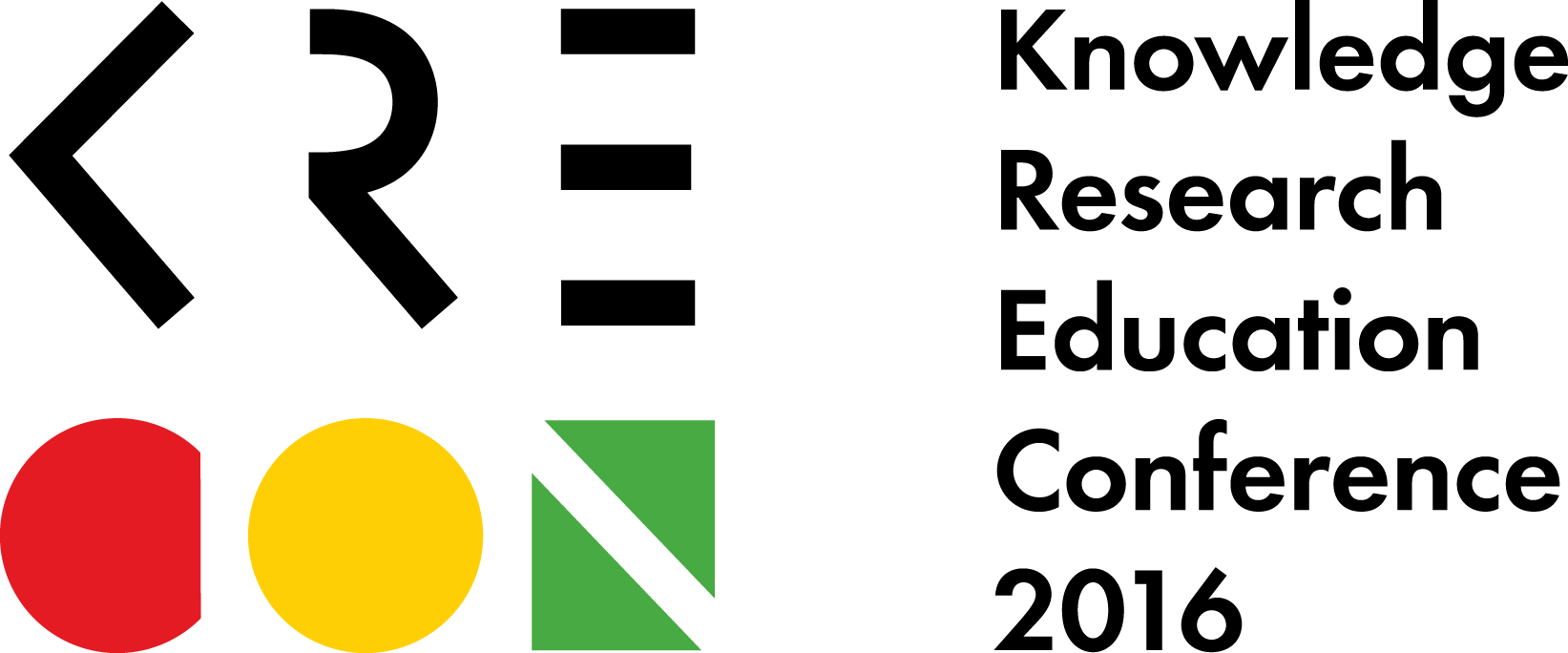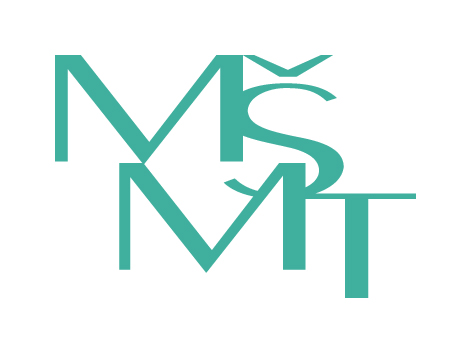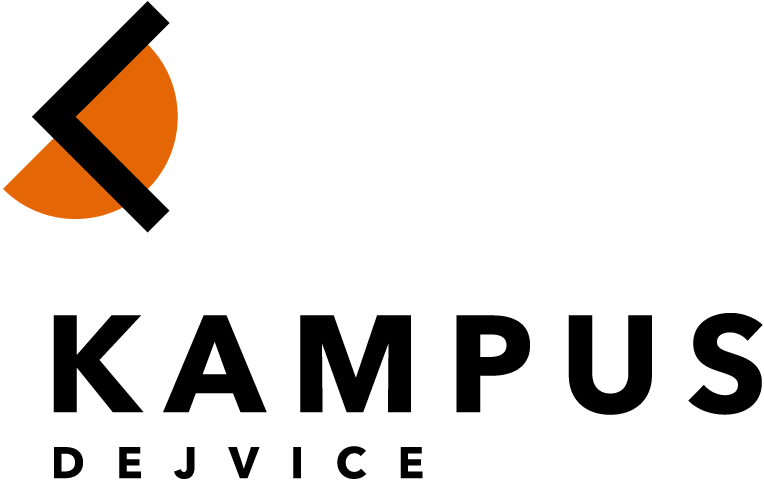KRECon 2016
The Future and Engagement of Young Czech Science
6 – 7 Oct 2016, Balling Hall, National Library of Technology
Scientific results very often end up on the drawing board, not being utilized in practice nor in solving present-day problems despite the fact that every researcher dreams of making day-to-day life better by saving and enriching lives, protecting the environment, modernizing industry, and designing unbeatable products–in other words: broadening horizons, innovating, and having an impact for the world.
How might we encourage better innovation in order to reach such goals? How and why are some institutions already successful fostering supportive environments for R&D? What can we learn from abroad?
The KRECon Conference 2016 is an opportunity for young and experienced researchers to learn from representatives of inspirational Czech and international institutions which have created ideal conditions for successfully applying research to practical solutions.
Who Should Attend?
Anyone who aims to make their research (completed or in progress) come to life and put it to practical use. Young scientists at the beginning of their scientific careers who wish to gain valuable information and experience as well as seasoned researchers who have completed many projects but who wish to reach even higher.
Program
Chair: Aleš Vlk
Thursday 6th
11:30 - 13:00 Lunch Buffet, Registration13:00 Opening
Part I: Science with Prospects for Practical Application - Utopia or Necessity?
13:15 - 14:00 Keynote: Martin Fusek, Institute of Organic Chemistry and Biochemistry AS CR
Use of results of science – not an utopia not a necessity but normal part of ethically done research
14:00 - 14:30 Jiří Nantl, Central European Institute of Technology
14:30 - 15:00 Michal Pěchouček, Czech Technical University in Prague
On innovation and building startups from university environment
15:00 - 15:30 Coffee Break
Part II:
15:30 - 16:00 Václav Matoušek, CF Plus Chemicals s.r.o.
Fluoroalkylation reagents for life sciences: From the idea to the first paying customers
16:00 - 16:30 Petr Ryšávka, Pharmaceutical Biotechnology s.r.o.
16:30 - 17:15 Lightning Talks - Introduce Your Project in Five Minutes
17:15 - 17:30 Coffee Break
Part III:
17:30 - 18:30 Panel Discussion
(Martin Fusek, Zdeněk Hostomský, Václav Matoušek, Jiří Nantl, Michal Pěchouček)
18:30 Dinner (Gallery NTK)
19:30 Party, Campus Dejvice
Friday 7th
Part IV: Outside Perspectives
9:30 - 10:15 John R. Normanton
25 years of academic technology transfer and company spin outs from England & Wales – Lessons learnt & opportunities for Prague
10:15 - 11:00 Christian A. Stein, Ascenion
My beautiful TTO
11:00 - 11:20 Coffee Break
11:20 - 11:40 Martina Plačková, Institute of Microbiology of the CAS
11:40 - 12:00 Otakar Fojt, British Embassy Prague
Societal Relevance of Academic Research - The Good, The Bad and The Ugly
12:00 - 12:30 Final Discussion
12:30 - 13:00 Lunch
KRECon 2016 will be held in both Czech and English, with simultaneous translation available into English.
Lectures and speakers
Otakar Fojt
Societal Relevance of Academic Research - The Good, The Bad and The Ugly
Former British Science Minister, professor David Willets, used to say that "science is not finished until it is communicated". And by communication, he did not mean just publishing a formal paper with impact factor. He also meant an application of the research results wherever relevant, and popularization of the research results to general public, so that the knowledge moves out of specialised academic silos to a general pool of knowledge. A tough challenge how to do it; much tougher how to do it well and learn what does work and what does not, and what the researchers face. Author of this talk is going to present his own experience with applied research at the Brno University of Technology, University of Oxford, University of York, the Fields Institute in Toronto and the UK Science and Innovation Network with an intention to motivate and show that where is the will there is a way. It is up to a young generation of researchers to raise this challenge and become better not only in research, but also in communication and application of research results.
Otakar Fojt studied biomedical engineering and completed his PhD as a Chevening Scholar at Oxford University in 1997. For four years, he worked as a researcher at the University of York after which he moved to the Fields Institute in Toronto. He has lectured at several universities in Britain and Canada. Between 2001 and 2002, he managed a small technology electronic production company in Central Europe. Since 2003, Fojt has been a scientific attaché for the British Embassy. He is one of ninety diplomats in the British Science and Innovation Network, which pursues international scientific cooperation in 30 countries. In this role, he has organized and hosted dozens of international conferences on various topics including research and innovation management, technology transfer, intellectual property protection, biomedical research, Horizon 2020, open access to scientific publications to the safety of nanotechnology, global risks, and development goals for the United Nations. He has also lectured on these topics and is dedicated to the popularization of science.
Martin Fusek
Use of results of science – not an utopia not a necessity but normal part of ethically done research
The use of results of research in practice is a natural part of the process. It may be not the main purpose but it is a part of it. Sometimes it is a long term process, sometimes it goes rather fast. For better understanding it is useful to discriminate between different types of research and not to simplify the evaluation.
Martin Fusek has devoted the past eight years to the issue of technology transfer at the Institute of Organic Chemistry and Biochemistry AS CR. He holds a PhD from the University of Chemistry and Technology in Prague in the field of organic chemistry and became a member of the Czech Academy of Sciences in the area of biochemistry. During his scientific career, he spent four years as a postdoctoral researcher in the United States and Germany. He is a professor of biochemistry at the University of Chemical Technology, Prague, where he teaches courses in clinical biochemistry and biopharmaceuticals. For many years he was engaged in basic research, moving into the commercial sector in 1995. Since 2007, he has led IOCB's technology transfer processes; since 2012, as Vice-Director for Strategic Development.
Jiří Nantl
Jiří Nantl is currently Director of CEITEC, the Central European Institute of Technology at Masaryk University. He has held many positions in higher education and public administration, among other positions. As Chancellor of Masaryk University; Director of the Department of Higher Education Ministry of Education, Youth and Sports; and Deputy Minister of Education, he participated significantly in the preparation of higher education reform legislation which led to the adoption of an amendment to the Higher Education Act in 2016 and the development of strategies for Czech educational policies in 2020. He additionally helped create the National Qualifications Framework for Higher Education. He is a member of the management boards of the University of South Bohemia in České Budějovice and the Janáček Academy of Music and Performing Arts. In the past, he was also Vice Chairman of the University Council, a member of the National Council for Qualifications, and the Education Policy Committee of the OECD.
John R. Normanton
25 years of academic technology transfer and company spin outs from England & Wales – Lessons learnt & opportunities for Prague.
In 1990, UK academic technology transfer and spin outs were still very much in their infancy. Major centres of excellence (e.g. Oxford, Cambridge, Imperial College London) had brilliant scientists, phenomenal publication rates and extensive international collaborations but most inventions failed to have their intellectual property captured properly. Moreover, few of the patent applications that were filed continued to involve inventors in the commercialisation process. Much of the commercial value of this intellectual capital ‘leaked out’ benefiting industry only and quickly leaving the academics behind. An even rarer event was the academic spin out company based around university technology and actively involving academic inventors. Academia and industry was almost universally viewed as ‘us and them’ – one was either in one camp or the other. The presenter will chart the changes that he was involved with in the pharmaceutical drug development sector as this landscape matured, show how young full-time academics became actively engaged with commercialising their science whilst remaining in their university environment and illustrate how national initiatives in Wales are being used to kick start improvements there including the creation of Life Sciences Hub Wales. Lastly, examples will be given of his current activities spinning out companies in close collaboration with multidisciplinary and multi-institute teams of scientists addressing major societal healthcare areas such as cancer, neurodegeneration and antimicrobial resistance.
John R. Normanton has for more than 25 years of experience in strategic planning and business development for research institutions, particularly in the fields of pharmaceuticals and biotechnology.
He has managed, implemented and negotiated multi-million contracts for research (including earning 26 mil. £ for two British universities from a single company over ten years), conducted strategic planning and management of intellectual property (over 500 patent applications filed), and launched several start-up and spin-off companies, including securing capital for their successful development.
In addition to successful founding and management of these companies, he was chief executive for spin-off companies and technology transfer at Imperial College in London for seven years. The successor of this endeavor, Imperial Innovations Ltd., has an investment portfolio worth over 220 mil. £, making it one of the largest technology transfer companies in the world.
Martina Plačková
Martina Plačková is a postgraduate student in microbiology at Charles University in Prague. During her studies, she has participated in several internships abroad. In 2014, she received a SCIEX (Swiss government) program scholarship. She spent one year at the Zurich University of Applied Sciences and gained additional applied experience by completing an internship at the Technical University of Graz (Austria), where she spent four months in the Aktion program. Since 2008, she has worked at the Institute of Microbiology of the Czech Academy of Sciences and also in companies dealing with education (Scio Ltd. and CIRCLE Education Ltd.). She is currently preparing for a postdoctoral internship abroad.
Christian A. Stein
My beautiful TTO
Ascenion is one of the largest technology transfer offices (TTO) in Germany and also one of the most successful in commercial terms. The company is a 100% subsidiary of the Life Science Foundation for the Promotion of Science and Research, which supports scientific research of Ascenion clients with grants to support their research.
What makes Ascenion different from most other TTOs? Why can it support science from its revenues, while many other TTOs cannot? There are three simple and quick answers to these questions:
The first is that Ascenion has access to a critical mass of excellent research results and inventions. The second is that the focus on a specific subject, life science, makes it easier to provide expertise and resources. The third is that the model of a non-for-profit foundation connected to a private company provides an attractive platform to centralize technology transfer to many public research organizations – thus receiving access to critical mass.
Techtransfer reality however is, as you know only too well, much too complex for easy answers. Technology transfer has become a field in which the only constant is change. Find out what makes current and tomorrow’s technology transfer tick. How important are startups really and what does a tech transfer office need to meet the new and growing challenges in our brave new, impact driven research world?
Before becoming chief executive officer of Ascenion, Christian Stein headed the Patent and Licensing Agency of the German Human Genome Project (PLA) at the Fraunhofer Patent Centre for German Research. He holds a PhD in molecular biology and obtained a Master of Science (MSc) in the Management of Intellectual Property Law in London. Christian Stein founded and cofounded several companies in and outside the biotech field. He is consultant and advisor for several EU programmes and regional and national expert groups, and serves on the boards of a number of biotechnology companies. In addition he is Immediate Past President of the European Knowledge and Technology Transfer Professionals Association, ASTP-Proton and he serves on the Board of Directors at ATTP (Alliance of Technology Transfer Professionals), the international body for professionals engaged in technology transfer.
Aleš Vlk (chair)
Aleš Vlk studied sociology at Charles University in Prague and completed his doctorate in public policy at the Universiteit Twente (Netherlands). He has been a consultant for CzechInvest and the Ministry of Education, Youth and Sports. Since 2008, he has been an executive at ALEVIA, a firm which organizes workshops and educational events for research organizations in addition to conducting special analyses, reports, and studies for R&D development. He is also Director of the TERI think tank, which conducts independent research and provides education and knowledge dissemination in the area of higher education policy, science policy, research & development and innovation policy and knowledge and technology transfer. He also works as a lecturer, facilitator, and moderator for special events and is an external lecturer at the Faculty of Social Sciences, Charles University in Prague.
The registration desk will be opened on Thursday Oct 6th from 11.30 a.m. in front of Balling Hall (entrance NTK4).
You can also pay the conference fee here (cash only).
Useful information
Participants are asked to make their own travel arrangements.Transport from the airport
From the airport, you can reach the National Library of Technology by bus or taxi.By bus:
Bus 119 departs from Vaclav Havel airport approximately every 5-20 minutes between 5 a.m. to 0:30 p.m. from Terminal 1 and stops near the entrance to subway line A's Dejvická station. The ride takes approximately 25 minutes and costs 24 CZK. You can also use the special bus AE linka (Airport Express) that stops at the same place (40 CZK).By taxi:
We recommend you to take a taxi with an official licence (AAA or 111 taxi). Taxis take about 10 minutes to arrive to Dejvice and cost around 300 CZK.
More information: http://www.dpp.cz/en/public-transit-to-ruzyne-airport/
Transport from the central station and the bus station
From the central railway station and the bus station Florenc, use the red subway line C towards Háje and transfer at Muzeum to green line A in the direction of the end station Dejvická. From there, follow the signs to the library/Czech Technical University campus.
Transport to the city center
Getting downtown from the conference is easy and convenient - using subway line A, it's just three stops to Staroměstská and five stops to Muzeum.
There are three kinds of tickets: the all-day ticket (110 CZK) is valid for 24 hours. Single trip tickets are available for 75 minutes (32 CZK) or 30 minutes (24 CZK) - be sure to validate your ticket when you enter the subway. The tickets are valid for the entire public transportation network including subway, bus, tram - and even the cable car to Petřín hill. They can be purchased in the self-service machines, at some underground stations, tobacconist shops and some newspaper kiosks.
More information: http://www.dpp.cz/en/
Accommodation
Participants are asked to make their own hotel arrangements. Some hotels near the conference venue:
Hotel DAP (Dům Armády Praha)
Address: Vítězné náměstí 684/4, 160 00 Praha 6 - Dejvice
Tel. + 420 973 211 444, + 420 973 211 422
http://www.daphotel.cz
Hotel Denisa
Adresa: Národní obrany 33, 160 00 Praha 6 - Dejvice
Tel. + 420 224 318 969
http://www.hotel-denisa.cz
Diplomat Hotel Praha
Address: Evropská 15, 160 41 Praha 6 - Dejvice
Tel. + 420 296 559 212, + 420 296 559 178, + 420 296 559 213
http://www.diplomathotel.cz/cz/home
Hotel International Prague
Address: Koulova 15, 160 45 Praha 6 - Dejvice
Tel. + 420 296 537 111
http://www.internationalprague.com
Masarykova kolej (hostel)
Address: Thákurova 1, Praha 6 - Dejvice
Tel. + 420 233 051 111
http://www.studenthostel.cz/
Other useful information
The Conference Hall has 196 seats in the auditorium and 50 seats in the balcony. All the seats in the auditorium (except the first row) offer power and data sockets.
More information about Prague
Contact
Lenka Patoková
lenka.patokova@techlib.cz
(+420) 232 002 505, (+420) 773 850 853




